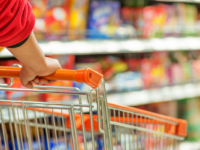Rabobank has predicted that food market disruption will continue throughout the year ahead due to the ongoing effects of the Covid-19 pandemic.
In its Australian Agribusiness Outlook for 2022, the specialist global agribusiness bank stated that the spread of the Omicron variant has greatly affected both the local and global food markets, which has raised issues including supply chain, labour shortages and increased inflationary pressures.
“Food companies and retailers need to navigate supply chain vulnerabilities,” said Michael Harvey, report co-author Rabobank senior analyst.
“Meanwhile consumer movement is voluntarily cautious, leading to reduced foot traffic. Over the course of 2022, the channel distortion we have seen should eventually return to pre-pandemic norms, but it will clearly not be as linear.”
According to Harvey, food company profits are under great pressure as inflation stems from different aspects of their business, including raw materials sourcing and distribution.
“And inflation is expected to remain high through much of 2022.”
Harvey also said companies are applying retail pricing on ranges of categories, which means consumers have to face additional living-cost pressures and reduced income support.
“The impact of these cost pressures on consumer food purchases will vary significantly across geographies and categories,” said Harvey.
“For those in the food and agricultural sector, there will need to be a keen eye on potential demand destruction in emerging markets.”
Harvey also mentioned the “rapid and structural pace of change” of consumer behaviour and food innovation. He noted that the pandemic has partly redefined the market demand since the need for natural, clean, fresh, and personalised food products are on the rise and e-commerce played a significant role in the food system during the pandemic.
“There are some clear pandemic winners, including products catering to consumers who work (and eat more) at home and have a preference for home snacking and convenient meal preparation, while on the flipside, on-the-go and foodservice products continue to be negatively impacted by reduced consumer mobility,” he said.
Meanwhile, Rabobank expressed concern about China’s zero-tolerance Covid policy since the country is the world’s largest market for importing food and agricultural products and in terms of impact on consumer demand.
“There was a slowdown in total Chinese retail sales growth towards the end of 2021, and, while food retail posted double-digit growth in the most recent data, when adjusted for inflation, it was a more subdued picture.”

















